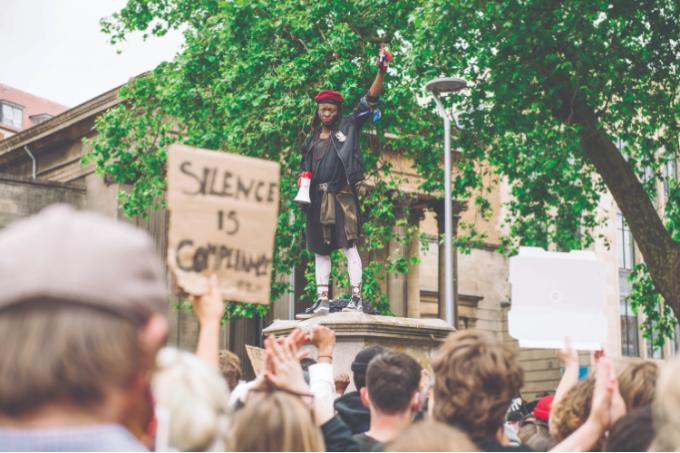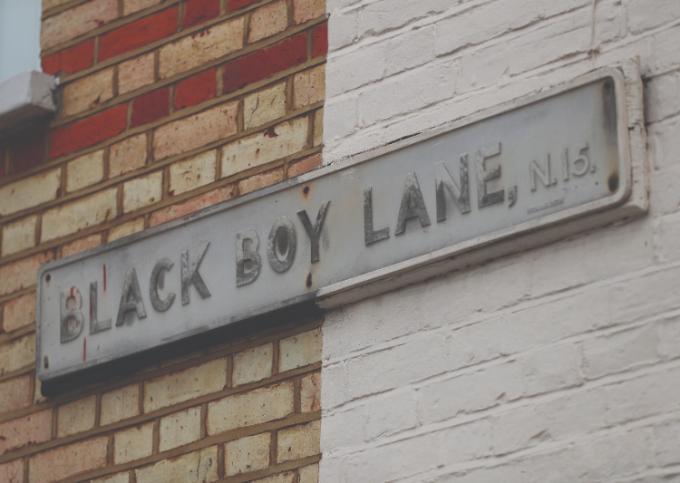Black history is not steel bands and jerk chicken
Portrait of Dido Elizabeth Belle Lindsay (1761-1804) and her cousin Lady Elizabeth Murray (1760-1825)
Baroness Young of Hornsey
7 min read
Black people have influenced all aspects of British life across the centuries, but our contributions remain largely unrecognised. We need a national historical reassessment to end this harmful error of omission
Black History Month started in the UK in 1987, the same year Diane Abbott, Paul Boateng, Bernie Grant and Keith Vaz were elected as MPs. Over the years, there have been critics of the idea of Black History Month from all sides.
I must admit that, in the past, I’ve found too many of the events taking place during October to be devoid of compelling historical content. There have been periods when Local Authority libraries and community centres thought Black history meant showcasing steel bands and serving up jerk chicken. It felt like the best we could hope for in terms of genuine historical content was that which we could glean from African-American culture, along with an obligatory reference to Mary Seacole and the landing of the Windrush.
Fortunately, there are signs that a fuller range of Black histories is gradually seeping into the consciousness of institutions and the general public, due in large part to the long-standing efforts of those who’ve fought for proper recognition of the subject for decades.
Due to the recent protests that followed the killing of George Floyd, the resurgent profile of Black Lives Matter, and especially the toppling of the Colston statue in Bristol, some institutions are beginning to set up bodies to review their collections, their own statues and the names adorning their buildings, with a particular focus on links to the transatlantic trade in African peoples.

A case in point is the independent commission established by Oriel College in June this year. It’s notable that although the subject of what to do about the statue of Cecil Rhodes and his legacy is where much of the public interest lays, the commission’s remit goes beyond that contentious issue.
Other issues on the agenda include: “how to improve access, attendance and experiences of BAME undergraduate, graduate students and faculty at Oriel College, together with a review of how the college’s 21st-century commitment to diversity can sit more easily with its past”.
This is going to be an interesting and potentially important move. Linking a review of how Black students fare in the college to the potential dismantling of the Rhodes statue surfaces the connection between past colonial practices and policies, and those of the present. Higher education institutions are critical in shaping the intellectual development and knowledge base of future generations, as are schools.
What is the impact of the failure to address in its entirety that period of imperial dominance, enslavement and the ideologies of colonialism? As one friend put it: “in our school history lessons, we went from the Battle of Hastings to World War II, and then on to the dismantling of the Berlin Wall”. The awkward silence surrounding the subject makes us ignorant. Horrible history indeed.
Bringing into the open those uncomfortable stories that don’t fit neatly into the dominant historical narrative is still a struggle; ‘invisible’ histories are frequently banished to the margins, their heroes and pioneers relegated to the footnotes.
People of African descent such as Pablo Fanque, the 19th-century circus owner immortalised by the Beatles; Francis Barber, Samuel Johnson’s manservant, who helped Johnson compile the Dictionary of the English Language; and Dido Elizabeth Belle Lindsay, a reproduction of whose portrait hangs in Kenwood House where she lived in Georgian England, are notable historical figures.
Britons have been fed the myth that Black people came here for the first time in 1948
We don’t, as some would have it, draw attention to them because we need to feel better about ourselves. The presence of these individuals and many others needs to be normalised not tokenised. Indeed, I regard them as heroes and pioneers because they battled against the many barriers erected to thwart their ambition and talent.
Britons have for so long been fed the myth that Black people only came here for the first time in 1948 that a wealth of historical evidence to the contrary has been consistently overlooked or denigrated.
Ignorance on the subject runs so deep that on those rare occasions when a Black person appears in an Elizabethan, Georgian or Edwardian historical drama, producers are still accused of the heinous sin of ‘political correctness’ or of trying to be ‘woke’, or ‘enforcing cultural diversity’ which promotes historical inaccuracy.
Yet the signs of this long-standing presence are all around us, especially pointers to the history of conquest and colonisation. It’s in Jamaica Street, Antigua Street, Pretoria Road, Black Boy Lane; Britain's colonial history is inscribed on its landscape in cities and towns up and down the country.
The historical amnesia that perpetuates our invisibility leaves all of us with a problem
It’s there in Reynolds’ portraits of the aristocracy and the Black people dressed to show off the whiteness and the wealth of their ‘owners’. It’s evident in Hogarth, in Shakespeare, Ben Jonson, Aphra Behn, Conan Doyle, and Robert Louis Stevenson. It’s there in the Daniel Maclise fresco in the Royal Gallery, in the House of Lords. The claim that we are not an integral part of the story of this country is a position that simply does not stand up to scrutiny.
The historical amnesia that perpetuates our invisibility leaves all of us with a problem that infects much of the conversation about the history of people of African descent (and others of course): without full acknowledgement of the facts of historic wrongs, I don’t believe it’s possible to address racism effectively.
The connections between colonialism and slavery, and Parliament, are inescapable – and not just with regard to the passing of legislation to abolish the slave trade on British ships. Researchers from University College London found that 469 MPs had benefited from the compensation handed out to ‘owners’ of enslaved Africans (and for which the taxpayer only finished paying in 2015).
The Speaker’s Advisory Committee on Works of Art has set up an inquiry to look into such connections further and over 200 items have been identified so far. This number includes both those who profited from and/or supported the transatlantic trade in human beings and the abolitionists who fought them.
Plaid Cymru MP Hywel Williams is chair of the committee and said it will “look for ways to explain the lives of the people depicted in our artworks – including controversial aspects – honestly and more fully … this is the first time we are systematically reviewing the entire collection, looking at issues around slavery and representation. We will look at ways to better explain and contextualise works in the collection through our website and in the material we give to visitors to Parliament. And we will look for ways to better shine a light on the people in Parliament who worked hard to abolish slavery.”
Until the past is confronted, with full disclosure, there’ll be no healing
Our contributions to, and influence on, Britain’s social, cultural and political life across the centuries – our very presence – has been hidden in plain sight, and it’s time to end this massively harmful error of omission. In doing so, it’s inevitable that some sensitivities will be exposed. But until the past is confronted, with full disclosure, there’ll be no healing.
A mature approach to Black History Month entails acknowledging and remedying wrongs and injustices, filling in gaps and absences, effectively treating historical amnesia. Should that kind of Black History Month gain traction and spread beyond the confines of October, we ought to be able to embrace a fresh vision of what a truly shared history might achieve.
Baroness Young is a crossbench peer.
